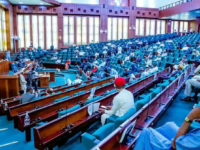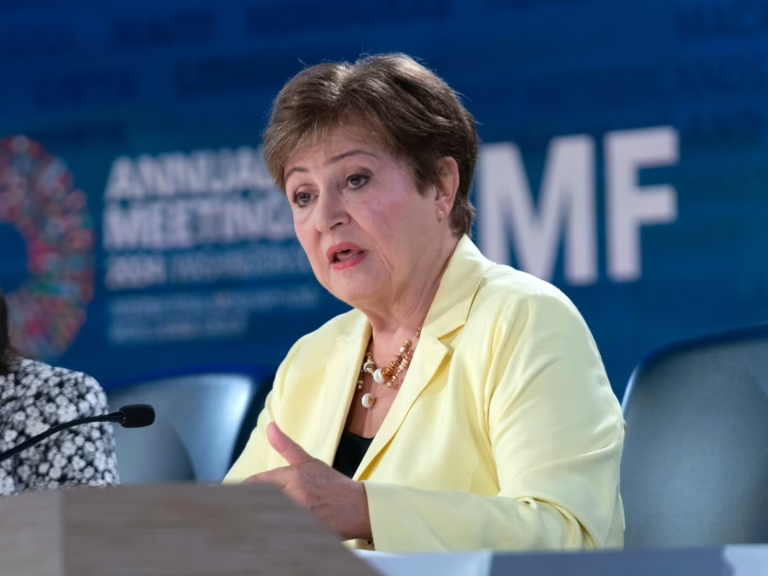Despite significant disruptions such as the tariffs imposed by former U.S. President Donald Trump, the global economy has demonstrated a surprising level of durability. However, the International Monetary Fund (IMF) Managing Director warns that this robustness may be temporary.
“Prepare for ongoing volatility,” Kristalina Georgieva cautioned during her address at the Milken Institute on Wednesday. “Uncertainty has become a permanent feature of the economic landscape.”
Her remarks coincided with gold prices soaring past $4,000 per ounce for the first time, reflecting investors’ flight to safety amid a depreciating dollar and rising geopolitical tensions. These comments come just ahead of the IMF and World Bank’s annual gatherings in Washington, D.C., where trade tensions, particularly those stemming from U.S. tariffs, are expected to dominate discussions among global financial leaders and central bankers.
Current projections estimate global economic growth at around 3% for this year. Georgieva attributes this steadiness to several factors: proactive policy measures by governments, adaptability within the private sector, and the tariffs’ impact being less severe than initially anticipated.
“However, it’s premature to relax,” she emphasized. “The global economy’s resilience remains unproven, and there are troubling indicators suggesting a stress test may be imminent-take, for example, the unprecedented surge in gold demand.”
Regarding the tariffs, Georgieva noted, “The full consequences have yet to materialize. In the U.S., shrinking profit margins might soon lead to increased price pass-through, fueling inflation and influencing monetary policy and economic growth.”
Since April, the U.S. administration has levied import duties on nearly all its trading partners, including Canada, Mexico, Brazil, China, and even smaller nations like Lesotho. During a recent Oval Office meeting with Canadian Prime Minister Mark Carney, Trump remarked, “We’re the kings of being hit by tariffs.”
Although the U.S. has negotiated some trade agreements with countries such as the United Kingdom and Vietnam, the tariffs have injected widespread uncertainty into global markets.
“In other regions, redirected shipments originally intended for the U.S. could provoke retaliatory tariff escalations,” Georgieva warned.
Next month, the U.S. Supreme Court will review whether the president’s tariff actions fall within the powers granted by the International Emergency Economic Powers Act.
Broader Implications
Georgieva also highlighted the growing frustration among young people worldwide, many of whom anticipate earning less than the previous generation.
“Youth protests are erupting globally-from Lima to Rabat, Paris to Nairobi, Kathmandu to Jakarta-as young populations demand improved prospects,” she said. “In the U.S., the likelihood of surpassing parental income is declining, fueling discontent that has spurred significant policy shifts affecting trade, immigration, and international cooperation.”
She advocated for enhanced regional trade within Asia, reforms to foster a more business-friendly environment in Africa, and increased competitiveness across Europe.
For the United States, Georgieva urged tackling the growing federal debt and promoting higher household savings rates.
The national debt, representing the total amount owed by the federal government, has ballooned from $380 billion in 1925 to an estimated $37.64 trillion in 2025, according to the U.S. Department of the Treasury.
The Congressional Budget Office projected in July that recent tax and spending legislation will add approximately $3.4 trillion to this debt by 2034.
The IMF, comprising 191 member countries, is dedicated to fostering global economic growth, ensuring financial stability, and alleviating poverty worldwide.






















